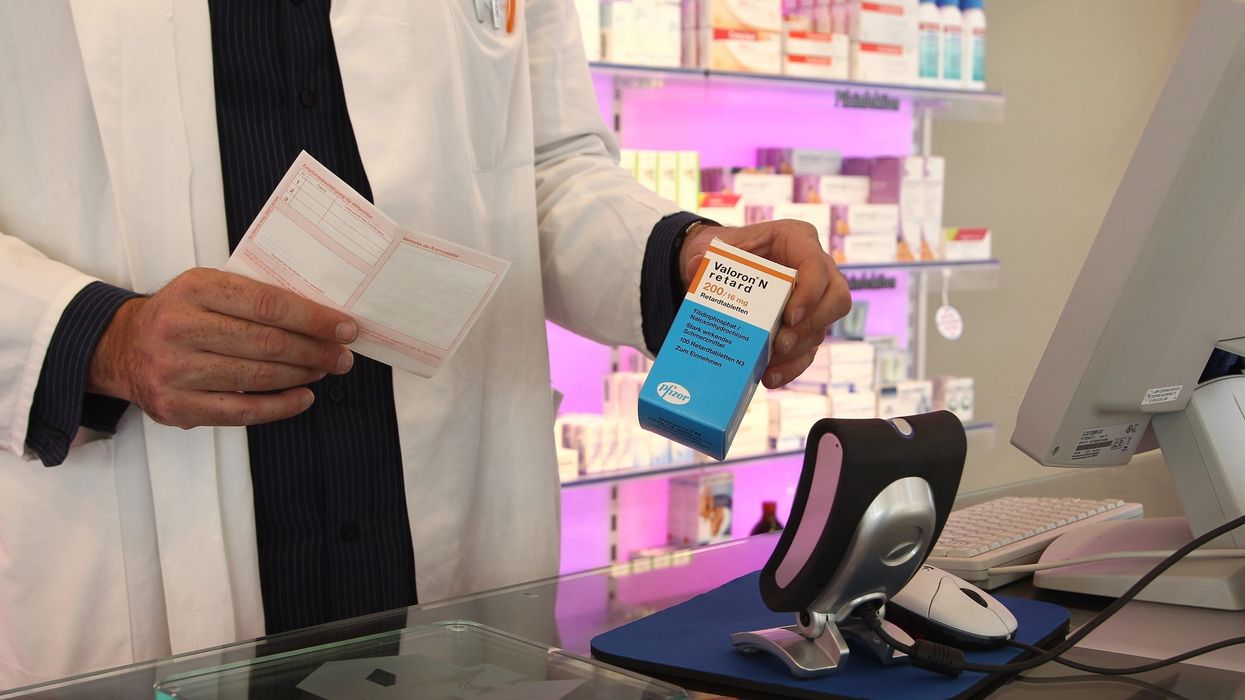Drawing from her vast experience in pain management, pharmacist Bina Patel advises how empathy, talk therapy and psychological support can be useful in helping the patient…
The current pharmacy contract focuses on utilising pharmacists’ skills in the areas which can further support patient care closer to home and reduce the burden on secondary care and GP appointments. Pain management is one such area that I have found to be a step in the right direction.
Pain can be classified generally as acute or chronic and depending on the situation can be a complex mixture of syndromes. The patient suffering with pain may be struggling with many issues in their day-to-day life.
Many seek help to either support what is prescribed as it is not doing the trick and/or seek help to manage their condition as they have not wished to make ‘a big fuss’.
Managing pain conditions requires an exploration of an individual’s background issues along with the causes of the pain syndrome and the impact on the patient’s lifestyle.
Chronic pain is a complex syndrome to manage; ideally requiring a multi-disciplinary team input. Complexities can include psychological, physiological and financial issues.
Community pharmacists dispense medication to patients daily and are ideally placed to provide some input and support to improve both patient care and quality of life.
What skills do we possess?
A. Personal knowledge of the patient
B. Accessibility without appointments
C. Conducting confidential conversations in consultation rooms
D. Knowledge of the medication being prescribed, side effects etc.
E. Signposting awareness
F. Awareness of the risk of condition escalation and red flags for onward referral Patients are familiar with the pharmacy and are in regular contact with the pharmacist and their team.
In managing pain it is important to build a relationship with the patient and the pharmacist is ideally placed having an established rapport with the patient.
Talk therapy can be useful to understand and empathise with these patients and, may help offload some of their concerns particularly with social isolation caused by a number of factors.
Psychological support is key in supporting these patients as its impact is felt not only by the patient but also by the people they live or interact with. In my experience this relationship with the patients and their families has been an important factor in my role as a pharmacist.
Pharmacies are open for longer hours and can be accessed easily by patients. This is a key element in the current climate where GPs are struggling to give appointments or longer appointments which this kind of patient may need. Greater accessibility provides for a good
support network for patients within the community.
Consultations within the pharmacies can be conducted in private at any time of the working
day without appointment and has proven to be the main stay of many a pain patient in my practice.
This gives them the opportunity to offload some of their concerns or worries and personal issues that arise from the impact of the ‘syndrome’.
The pharmacist can also intervene by ensuring that the patient is aware of how to get the best out of their medication. This can be done by way of exploring the patient’s lifestyle and pain pattern. When do they experience most pain, what triggers off the pain and what are their main goals?
This background will help decide how the regimen can be altered to fit the lifestyle and pain cycle of the patient. Pain is an ‘algesic’ hence, looking at managing breakthrough pain will help improve a patient’s quality of life and build a rapport with them.
My experience has been in this area where talking to my patients exploring their pain causes, pain cycles, lifestyles and then trying to alter the regimen to suit their condition helps improve their quality of life.
Pharmacists can also help patients and support them through exploring side effects of the
analgesics, supporting patients when medication regimens are changed.
An explanation of how the medication works with the combination prescribed and how the drugs work hand in hand helps a patient understand why their medication is required to be
taken in the sequence or interval stipulated.
Several medications are used for their side effects and not their main licensed use which needs to be explained to patients. In my consultations this was identified as an issue that could be discussed at inception to avoid the subsequent concerns patients may raise.
Patients do not take the medication due to concerns and this delays improvement of pain management. Concordance is a key element of any regimen in managing any condition.
Pharmacists can emphasise this point as breakthrough pain and pain per se, need to be managed promptly by use of medication.
Explanation of a prescribed pain regimen will help the person control their pain cyclically through the course of the day. Maintaining links with other professionals that could help in the patient’s care should be considered such as physiotherapists and counselling service professionals.
The patient has the choice, however signposting them to other sources where appropriate may help improve their quality of life. Complete management of pain is not always possible however a patient that is supported is likely to cope better. A pharmacist in the community is the face that is easily accessed and is ideally placed to provide this first step to patients once discharged into the community or patients simply trying to cope on a day-to-day
basis.
(Award-winning pharmacist Bina Patel runs Kalsons Chemist in Essex.)











